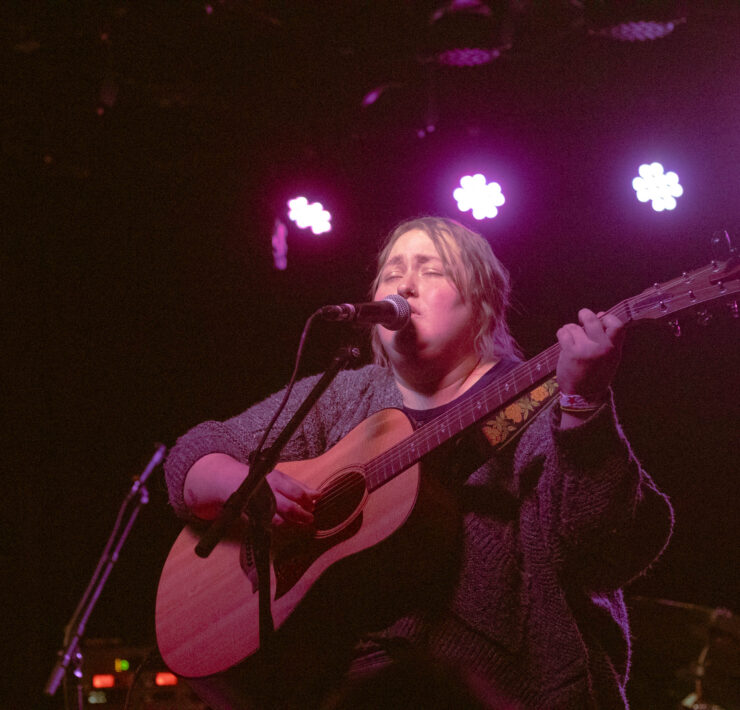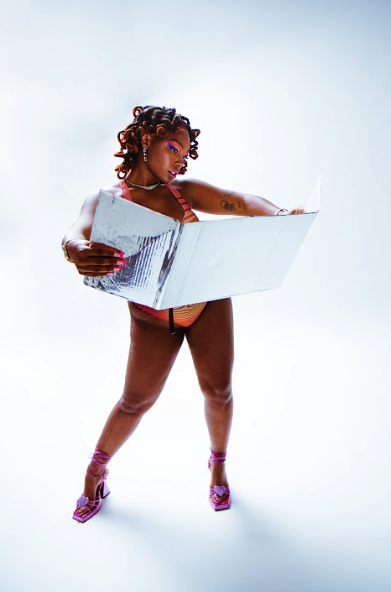Queer Girl Q&A: December Issue

An LGBT bilingual writer, Eleni was born and raised in…
Q: This year will be the first time I’m not spending Christmas with my parents. I didn’t want to recreate Happiest Season, where Kristin Stewart’s character gets introduced to her partner’s family as a friend—So I told the folks about my girlfriend. They did not respond well. This has led me to choose to spend Christmas with my girlfriend’s family instead.
I’m not sure I have a question. I mainly wanted to say that it sucks, and it makes me sad, and I wish I could change their minds. But it doesn’t feel like there’s much I can do or say.
A: I’m really sorry to hear this. Sadly, this is a situation that still far too many LGBTQ individuals throughout the world find themselves in—even in liberal enclaves like the Bay Area or Denver. Too many queer friends I’ve met through the years have shared less-than-idyllic coming out to family stories.
One’s mother cried inconsolably. Another’s, while out to lunch with her, tried to set her up with their male waiter immediately after she’d disclosed her orientation to her. Still another’s parents simply refused to ever speak about it with him.
Beyond these more overt examples, parental rejection can (and often does) occur in subtler ways. As lesbian author Sarah Schulman wrote, “Many gay people will say that their families are ‘fine.’ But when you ask for details, this means, basically, that the gay person has not been completely excluded from family events. Or that their partner, if they have one, is allowed in the house. Very few experience their personhood to be actively understood as equal to the heterosexual family members.”
When a parent doesn’t accept you, it can feel devastating. It creates cognitive dissonance and the need to hide, compartmentalize, and tamp down the full range of who you are.
Familial support is in large part what allowed me to proudly own my gay identity, navigate the queer scene so freely at a relatively young age, and to date and live openly—especially back when gayness wasn’t as accepted or normalized. Without it, I have no doubt it would’ve been far more difficult.
Matthew Weissman, a clinical psychologist in Washington, D.C. who works predominately with gay teens and adults, has reported that most of his patients struggle with some form of internalized homophobia and that the root cause is typically the home environment.
I’ve tried to understand the mindsets of unsupportive or conflicted parents. I’ve wondered, even, whether their own unresolved issues lie at the heart of their difficulty. Schulman believes this was the case for her mother, whose unacknowledged traumas led her to “fear difference, (and) fear the disapproval of the dominant culture, which kept her from being able to love her lesbian daughter.”
I also think of examples of parents who took some time to come around, but eventually did. After initial ambivalence, basketball player Layshia Clarendon’s dad grew more accepting over time, and the two are now very close.
My friend Derick’s dad was ultra conservative and refused to accept his orientation at first. When Derick married his love a couple of years ago, though, his dad walked him down the aisle.
“Growth does not happen overnight. It’s a process. So if anyone is experiencing a rough time coming out, just know there is hope, and do not give up on your loved ones. Time takes time, ” was how he put it.
I’d like to give parents the benefit of the doubt. They’re not evil, or even necessarily homophobic, for their inability to jump on board right away. Still, that doesn’t take away from the pain that results from their ingrained beliefs and ensuing behaviors.
Reader, I hope for your parents to at some point reach a place of acceptance. I’d like to hope that one day, they’ll allow their love to overpower the fear that I strongly feel lies at the heart of their disapproval. And I hope the same for families of LGBTQ individuals across the world—wherever they are in their journey or process of acceptance.
At the same time, I understand that this might be wishful thinking. The world is changing, but slowly and in fits and starts. Some minds are still set in stone and will remain that way.
Be good to yourself this holiday season, and I’m sending a big hug to anyone in a similar boat as you. Know that as much as it might hurt, you’re nowhere near alone in this experience.
It’s perhaps in moments like these when chosen queer family—bound by bonds thicker than blood—become all the more important and nourishing.
You can follow Eleni on IG @eleni_steph_writer.
What's Your Reaction?
An LGBT bilingual writer, Eleni was born and raised in the Bay Area. Her work has been published in Tiny Buddha, The Mighty, Thought Catalog, Elephant Journal, The Fix, The Mindful Word, and Uncomfortable Revolution among others. You can follow her on IG @eleni_steph_writer and read stories from her time as a rideshare driver at lyfttales.com










